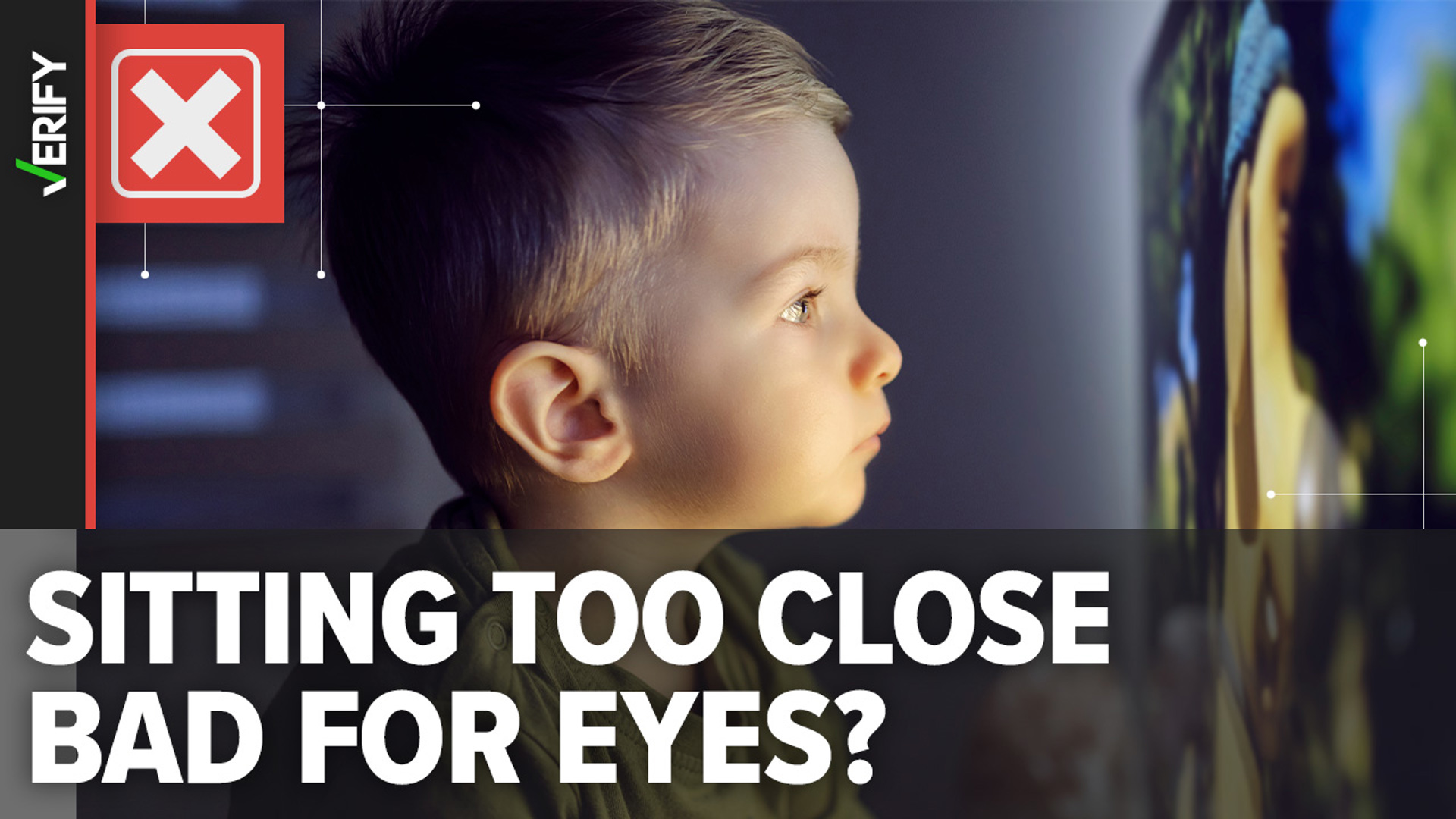When you were growing up, did one of your parents ever tell you to back away from the television because they claimed sitting too close to the screen was bad for your eyes?
One VERIFY viewer recently sent us a text asking if sitting too close to the TV can really cause eye damage.
THE QUESTION
Can sitting too close to the TV damage your eyes?
THE SOURCES
THE ANSWER
No, sitting too close to the TV cannot damage your eyes.
WHAT WE FOUND
There is no evidence to suggest that sitting too close to the TV can damage your eyes. This is a popular myth that all of our sources, including the American Academy of Ophthalmology, University of Utah Health Moran Eye Center and Johns Hopkins All Children’s Hospital, debunk on their websites.
“While sitting very close to the television may cause eye strain or give you a headache, it will not damage vision in children or adults,” the American Academy of Ophthalmology wrote in an article on common eye myths.
Young children typically sit close to the TV because they have a greater ability to focus on objects closer to their eyes than adults do. As children grow older, these habits usually change, according to Prevent Blindness.
However, habitually sitting too close to the TV may signal that an adult or child is nearsighted and may need glasses. Nearsightedness (myopia) is a common vision condition in which close objects appear clear, but objects farther away look blurry.
While sitting too close to the TV can’t damage your eyes, watching TV for long stretches of time can leave your eyes fatigued, according to the Paul Vision Institute, an eye doctor based in Wilmington, North Carolina. Eye Consultants of Atlanta agree.
“The feeling may be as simple as dry, uncomfortable eyes, or you may feel discomfort similar to a headache in and around your eyes. If this happens, the best medicine is a good night’s rest and an over-the-counter pain reliever,” Eye Consultants of Atlanta says on its website.
The Paul Vision Institute and Eye Consultants of Atlanta share a list of TV viewing tips that can help prevent eye strain:
- Make sure your TV set is properly installed.
- Position the TV to avoid glare and reflections from lamps, windows and other bright sources.
- Adjust brightness and contrast controls to individual and/or viewer’s taste and comfort.
- Have the TV set at eye level. Avoid having to look up or down at the picture.
- Avoid staring at the screen for lengthy periods. Briefly look away from the picture, around the room or out the window.
- Wear lenses prescribed for vision correction, if advised to do so by your eye care practitioner.
- View from a distance at least five times the width of the television screen.
“The act of moving your eyes and focusing on near and far objects exercises your eyes and helps prevent fatigue,” Eye Consultants of Atlanta says. “Remind yourself to blink frequently while you watch TV to lubricate the surface of your eyes.”

